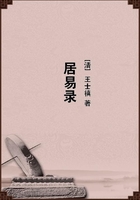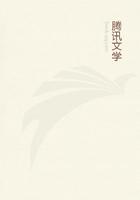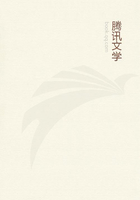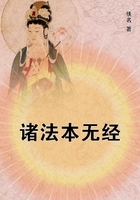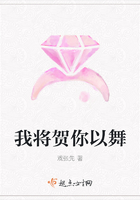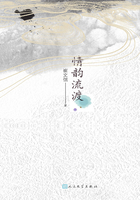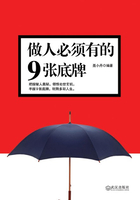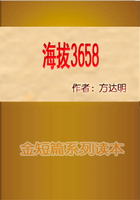IN an age of materialism like our own the phe-nomenon of spiritual power is as significant and inspiring as it is rare. No longer associated with the "divine right" of kings, it has survived the downfall of feudal and theocratic systems as a mystic personal emanation in place of a coercive weapon of statecraft.
Freed from its ancient shackles of dogma and despotism it eludes analysis. We know not how to gauge its effect on others, nor even upon our-selves. Like the wind, it permeates the atmos-phere we breathe, and baffles while it stimulates the mind with its intangible but compelling force.
This psychic power, which the dead weight of materialism is impotent to suppress, is revealed in the lives and writings of men of the most di-verse creeds and nationalities. Apart from those who, like Buddha and Mahomet, have been raised to the height of demi-gods by worshipping mil-lions, there are names which leap inevitably to the mind--such names as Savonarola, Luther, Cal-vin, Rousseau--which stand for types and ex-emplars of spiritual aspiration. To this high priesthood of the quick among the dead, who can doubt that time will admit Leo Tolstoy--a genius whose greatness has been obscured from us rather than enhanced by his duality; a realist who strove to demolish the mysticism of Christianity, and be-came himself a mystic in the contemplation of Nature; a man of ardent temperament and robust physique, keenly susceptible to human passions and desires, who battled with himself from early manhood until the spirit, gathering strength with years, inexorably subdued the flesh.
Tolstoy the realist steps without cavil into the front rank of modern writers; Tolstoy the ideal-ist has been constantly derided and scorned by men of like birth and education with himself--his altruism denounced as impracticable, his preaching compared with his mode of life to prove him inconsistent, if not insincere. This is the prevailing attitude of politicians and literary men.
Must one conclude that the mass of mankind has lost touch with idealism? On the contrary, in spite of modern materialism, or even because of it, many leaders of spiritual thought have arisen in our times, and have won the ear of vast audi-ences. Their message is a call to a simpler life, to a recognition of the responsibilities of wealth, to the avoidance of war by arbitration, and sink-ing of class hatred in a deep sense of universal brotherhood.
Unhappily, when an idealistic creed is formu-lated in precise and dogmatic language, it invari-ably loses something of its pristine beauty in the process of transmutation. Hence the Positivist philosophy of Comte, though embodying noble aspirations, has had but a limited influence.
Again, the poetry of Robert Browning, though less frankly altruistic than that of Cowper or Wordsworth, is inherently ethical, and reveals strong sympathy with sinning and suffering hu-manity, but it is masked by a manner that is sometimes uncouth and frequently obscure. Ow-ing to these, and other instances, idealism sug-gests to the world at large a vague sentimentality peculiar to the poets, a bloodless abstraction toyed with by philosophers, which must remain a closed book to struggling humanity.
Yet Tolstoy found true idealism in the toiling peasant who believed in God, rather than in his intellectual superior who believed in himself in the first place, and gave a conventional assent to the existence of a deity in the second. For the peas-ant was still religious at heart with a naive unques-tioning faith--more characteristic of the four-teenth or fifteenth century than of to-day--and still fervently aspired to God although sunk in su-perstition and held down by the despotism of the Greek Church. It was the cumbrous ritual and dogma of the orthodox state religion which roused Tolstoy to impassioned protests, and led him step by step to separate the core of Christianity from its sacerdotal shell, thus bringing upon himself the ban of excommunication.
The signal mark of the reprobation of "Holy Synod" was slow in coming--it did not, in fact, become absolute until a couple of years after the publication of "Resurrection," in 1901, in spite of the attitude of fierce hostility to Church and State which Tolstoy had maintained for so long.
This hostility, of which the seeds were primarily sown by the closing of his school and inquisition of his private papers in the summer of 1862, soon grew to proportions far greater than those arising from a personal wrong. The dumb and submis-sive moujik found in Tolstoy a living voice to ex-press his sufferings.
Tolstoy was well fitted by nature and circum-stances to be the peasant's spokesman. He had been brought into intimate contact with him in the varying conditions of peace and war, and he knew him at his worst and best. The old home of the family, Yasnaya Polyana, where Tolstoy, his brothers and sister, spent their early years in charge of two guardian aunts, was not only a halt-ing-place for pilgrims journeying to and from the great monastic shrines, but gave shelter to a num-ber of persons of enfeebled minds belonging to the peasant class, with whom the devout and kindly Aunt Alexandra spent many hours daily in religious conversation and prayer.

